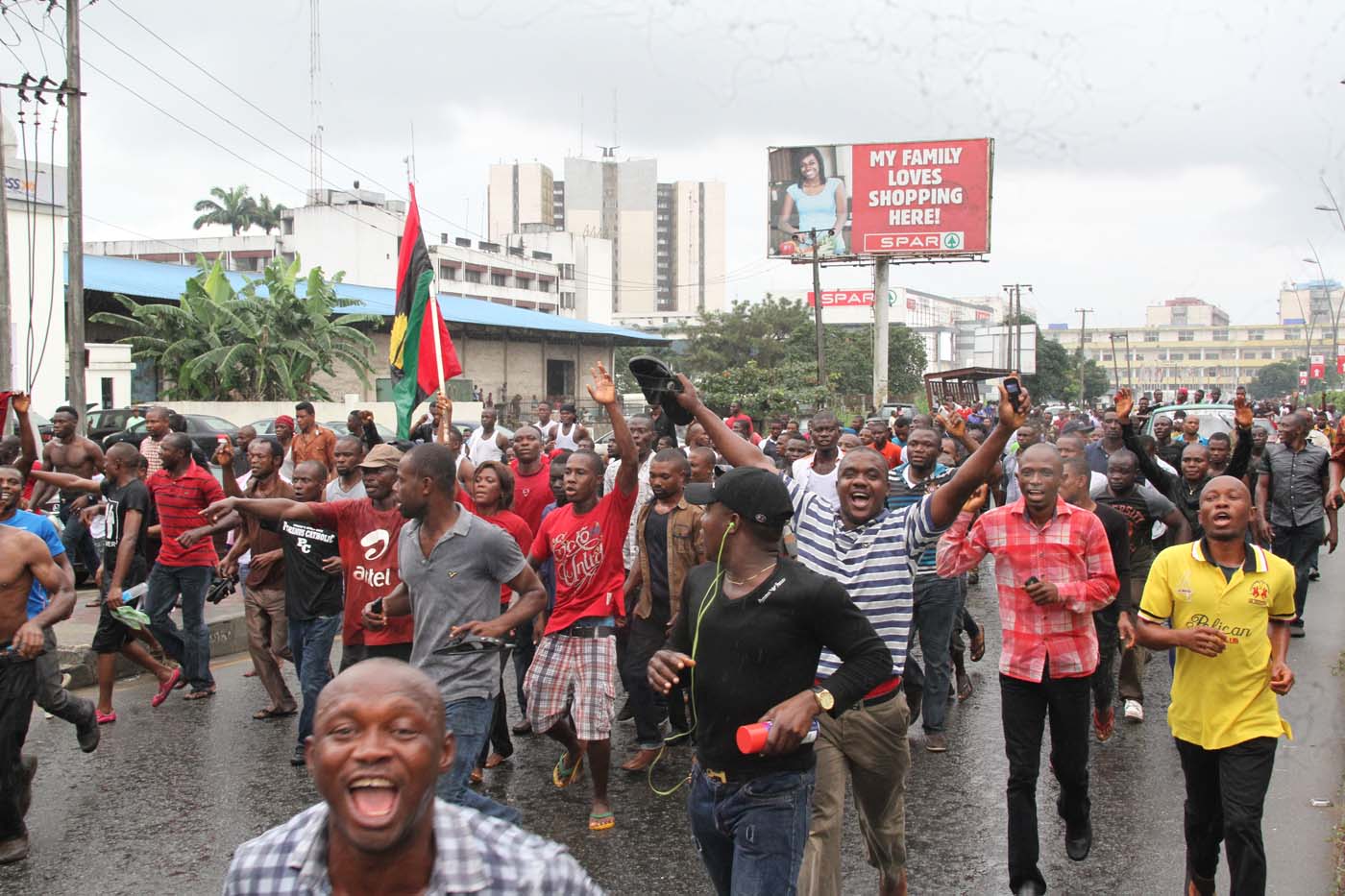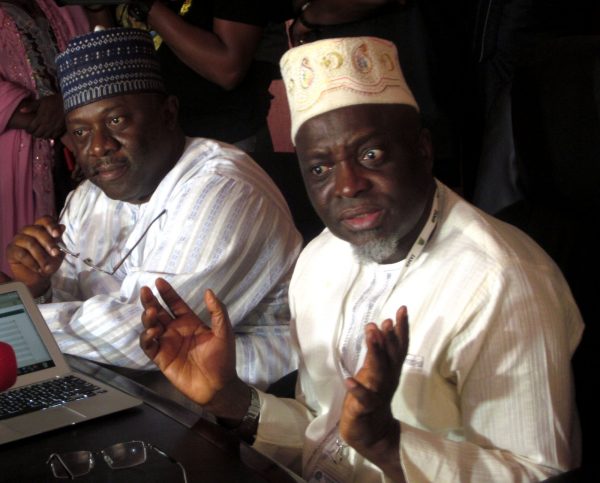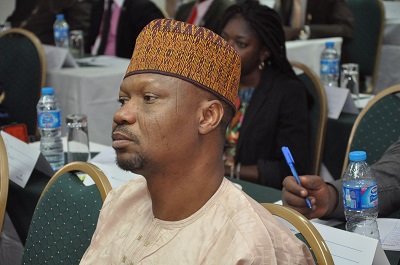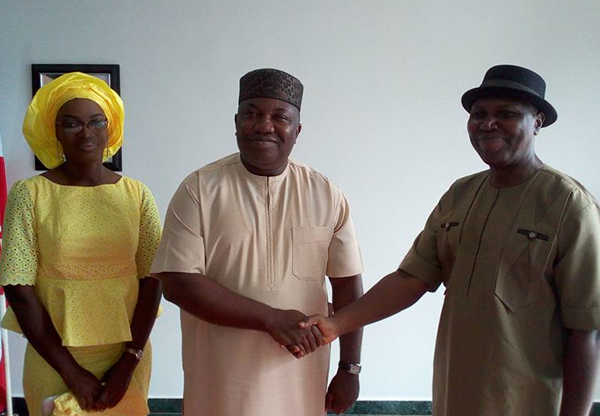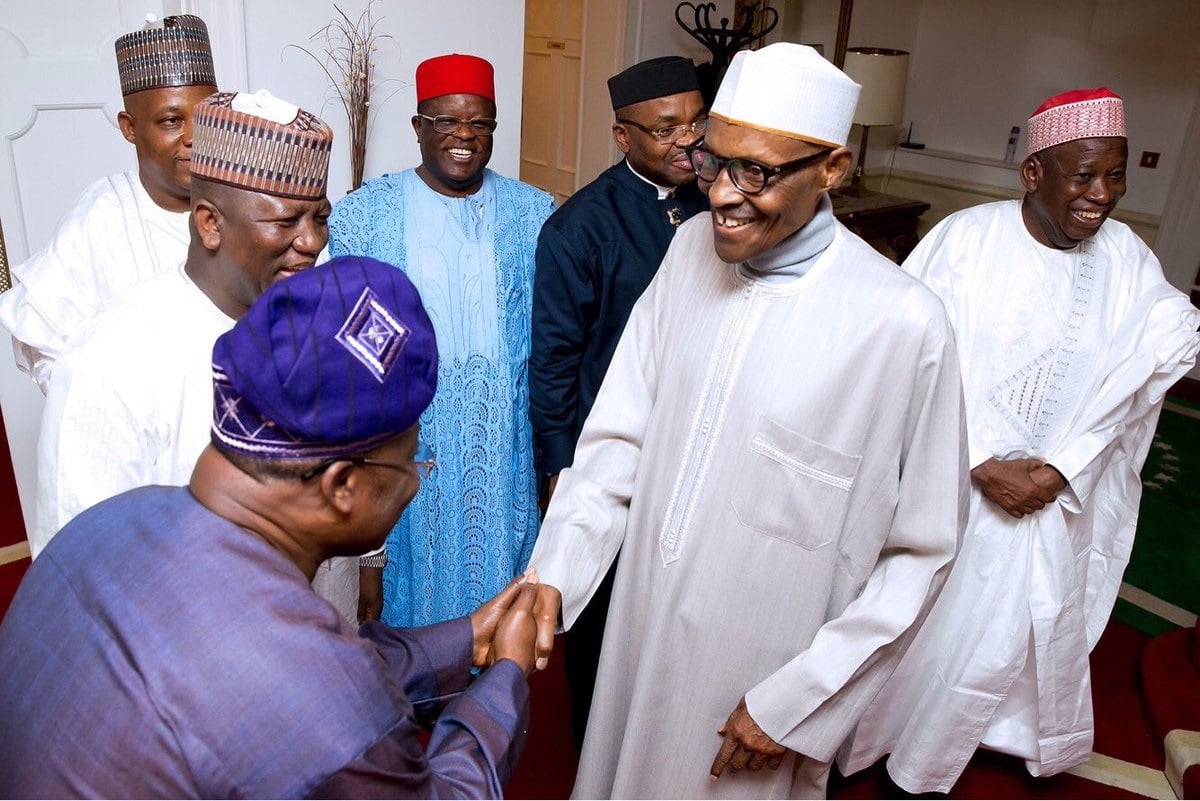BY FRANCIS OBORJI
“Watchman, what of the Night” (Isaiah 21:11): “Nobody pays attention to what we say. No one listens to us. We are there to wait at their door. Those who have papers pass in front… taken care of … for us nothing.” (Jean Marc Ela in the epigraph in his book, “L’Afrique des Villages” (1982).
The above citation from “ L’Afrique des Villages”, the immortal work of Jean-Marc Ela, a Catholic Priest and African theologian from Cameroun, is a fitting introduction to the theme of this article. It is a bird’s eye view of the lamentations of African masses against their so-called political leaders and elites who have been operating since independence in 1960s with constitutions not approved through referendum or popular votes.
In traditional African society, any decision taken from top or rather by a selected privileged few, which has not first been discussed and approved at the grassroots level, the African palaver popular assembly discourse (L’Afrique des Villages), is not binding on the masses and therefore, does not elicit any obedience or respect from them.
Have we ever asked ourselves the following question: Why, in a modern African nation state, such as Nigeria, anybody can disobey and disrespect the constitution without any qualms of conscience? Even our elected officers, politicians and elites have no respect as such for the constitution. Nobody questions them when they disobey the constitution or law of the land
Advertisement
Why do our political leaders and elites behave as people who are above the law and constitution? Even when laws are used to pursue any of them, it is often selective, just as a witch-haunt against a perceived political opponent by those in power, and not as respect for the rule of law.
Why are all these? The answer is not far-fetched.
Since the time of its amalgamation till date, Nigeria has never been ruled or rather governed with a referendum-approved constitution. In other words, Nigerian people have never been called to vote in referendum to approve their nation’s constitution.
Advertisement
The Nigerian nation-state has been operating till date with constitutions fashioned either by those with continued colonial interests in the country or by their spinoffs, the elites and politicians dominated by members from the most favored ethnic and religious group in the country. This means that Nigeria is yet to fashion a constitution that is approved by majority of its citizens through referendum, a constitution founded on the will of the people. Nobody can dare disrespect or flout the laws of people-oriented, referendum-approved constitution and go free.
A historical perspective
We should not forget that modern African states were direct products of the Berlin Conference, 1884-1885, and the Berlin General Act through which European powers partitioned and divided up the continent of Africa for their selfish economic interest and political domination. Prior to the Berlin arbitrary partitioning of Africa, traditional societal organizational structure was intact.
However, with the backing of the Berlin “Act”, colonial administrative structures began to emerge. Right across Africa, frontiers were drawn without any reference to the ethnic and religious differences of the people. There was no reference to the people either.
Advertisement
They were simply ignored. Many African peoples or ethnic-groups were spilt as the new and often arbitrary boundaries drawn by the foreign powers came into effect.
The new decree issued by the colonial masters meant in principle, that henceforth people must beg for permission if they wanted to cross frontiers to visit their relatives. Thus, began the colonial policies and the disorganization of the traditional pattern of societal organization in Afric
In most cases, many African ethnic-linguistic groups sharing the same language and culture were often separated into different countries, and those with different cultures and languages were often merged with fractions of dismembered groups. This was the case with Nigeria, where three large and powerful ethnic groups (Hausa/Fulani, Igbo and Yoruba) that had been hostile to one another were merged together with other neighboring minor ethnic groups.
The consequences were the Igbo pogrom in Northern Nigeria in 1966/1967, the three year Nigeria-Biafra War (1967-1970), many years of military dictatorship, coups and counter-coups, rule of the generals from dominant ethnic-group as well as the present political tensions and endless instability of government in the country.
Advertisement
In other words, the colonial boundaries have continued to be a source of tension and fighting in various African nation states that came to be after the Berlin Act of 1885. Unfortunately, after political independence in 1960s till date, African leaders instead of addressing the arbitrary colonial boundaries have decided to maintain them at all cost.
This is the root of Nigeria’s present predicament. It is the background for understanding the Nigerian situation. It would seem that for our political leaders and elites, the arbitrary colonial arrangement that created Nigeria as a nation-state, is ‘a no go area.’ In spite of millions of lives of our people that have perished in Nigeria because of the arbitrary colonial arrangement, our political leaders and elites have remained dogged in insisting that we shall continue to live under such a colonial “letter bomb” in our land.
Advertisement
However, the insistence of those who advocate that we must continue to live under the present post-colonial arrangement in Nigeria is not because they love the country. Neither is it because they want to build-up Nigeria as a truly democratic modern nation-state. It is not also because they want to promote shared values among Nigerians of different ethnic and religious backgrounds for a new nation we all can call our own to emerge. No. None of these is their intention!
Rather, it is because Nigeria as it is presently structured favors their selfish interest, their continued looting from the Nigerian oil wealth in the Niger Delta and the entire former Eastern region of the country.
Advertisement
Petroleum and gas, the ‘black stone’, mineral and natural deposits in the Atlantic Coasts of former Eastern region of Nigeria were the major driving force behind the Federal Government slogan during the Civil War, “To keep Nigeria one is a task that must be done.”
In other words, Nigeria is conceived and maintained till date as a ‘unified’ entity not because we have values we share as one nation or that we intend to promote such in the nearest future. But, rather because there is oil in the Atlantic Coast of the former Eastern region of the country to loot. Period! The refusal to accept this naked truth is part of the Nigerian narrative and Calvary without redemption.
Advertisement
Our political leaders and elites are yet to know that they are constantly being confronted with the choice between ‘oil and people’, in nation-building. Whichever one they have chosen, is the direction they want the country to go.
A country never ruled with a referendum-approved constitution
In the book of Exodus we learnt that even in divine arrangement for the birth of the nation of Israel, the people had to ratify the covenant, which Yahweh made with them through Moses:
“Moses went and told the people all Yahweh’s words and all the laws, and all the people answered with one voice: All the words Yahweh has spoken we will carry out.” (Exodus 24:3).
Apart from the biblical testimony, ancient Greek thinkers have helped us to appreciate the significance of popular sovereignty in governance with the term “democracy.” Democracy, a term coined from two Greek words – people’s role, means ‘popular sovereignty.’
In modern times, democracy is defined, first by Daniel Webster in 1820s as “People’s government, made by the people and answerable to the people.” Abraham Lincoln in 1963, appropriating Webster’s definition, defines democracy as “Government of the people, by the people and for the people.”
It is for this reason that the preamble to constitutions of modern nation states begin with the expression: “We the people of …” (name of the country). However, this preamble has meaning only in those countries where the citizens, from first day of preparation for the writing of their nation’s constitution to its conclusion at the
Constituent Assembly, are fully involved and carried along at every stage in the formulation and approval of each article of the constitution.
This is why Britain recently had to vote in referendum for Brexit from European Union. Italy also voted in referendum to change from bicameral parliamentary system to mono-cameral, the German style. In each of these cases, the government-in-power pursuing the change-agenda failed in the referendum. The popular sovereignty carried the day.
There was a referendum in these countries, because the matter involved in each of those cases, touches on an article in the constitution, which passed through referendum before inserted there. They were not in the constitution simply because the parliament had approved them into law.
There were articles of a referendum-approved constitution. Therefore, to change any of these articles of constitution, the people must vote again in referendum to say ‘yes or no.’ That is how democracy works.
The first involvement of the people in the drafting of their nation’s constitution begins with their participation in voting to choose their representatives for the Constituent Assembly for the drafting of the new constitution. This must not be confused with voting at the political elections, which are partisan in character. It is for this reason that the National Assembly parliamentary exercise in whatever guise (be it Constitution Amendment Review or whatever), cannot substitute for the function of the Constituent Assembly.
While the former are mainly partisan politicians with partisaninterests, the later (Constituent Assembly), is made up of individuals not drawn from political class with partisan interests only, but rather, mainly from those hardworking and sincere individuals in the society, judged and voted by the people because of their outstanding integrity, principle of life and people-oriented interest.
It is expected that through the Constituent Assembly representatives, government mobilization and information departments, the people at the grassroots in their various constituencies would be kept abreast on daily basis about the happenings in the Constituent Assembly. The issues discussed and articles approved at the Assembly, at the end of it all, are subjected to popular vote through referendum at the grassroots level.
The constitution becomes law only after it has been approved through referendum, the popular vote. Otherwise, it remains as a non-binding document in the eyes of the masses. This is democracy. It is what guides and justifies the preamble to authentic constitution, “ We the people of … give to ourselves this constitution.”
This indicates that sovereignty belongs to the people. The constitution is theirs and they are prepared to defend it and hold their leaders accountable if they go against the constitution in governance.
Unfortunately, we have been using the expression in the preamble to the Nigerian constitutions, “We the people of Nigeria give to ourselves…,” without having really produced any popular constitution since independence, indeed, from the time of amalgamation in 1914. This means that we have been arrogating to Nigerian constitutions, what really they are not. We do not yet have popular constitution in Nigeria. Nigeria has never approved its constitution through referendum. Even the so-called amended articles of the current 1999 Constitution never passed through referendum after the parliamentary votes.
At independence, British colonial authorities never provided the people of Nigeria an opportunity to vote in referendum, either for independence as a unified nation or for the constitution fashioned for the new nation. They just invited 106 Nigerian delegates drawn from the ethnic
nationalities at a conference in 1958 in London. That conference yielded the 1960 constitution that ushered Nigeria into the ‘façade political independence.’
In 1963, with the departure of Southern Cameroun from Nigeria, some elites and politicians fashioned the 1963 Republican Constitution without referendum. The military intervention of 1966 abrogated the 1963 constitution. The Constituent Assembly of 1977 of Murtala/Obasanjo Military Junta produced the 1979 constitution (also without referendum) that returned the country to civilian rule, until Buhari-Idiagbon Military Junta abrogated it in 1983. In 1989, General Ibrahim Babanginda Military Junta set up a Constituent Assembly that produced (without a referendum), the short-lived 1993 constitution. After the ‘June 12’ saga and the Abacha Military Junta adventure, General Abdulsalami Abubakar Military Junta produced the current 1999 constitution, also without referendum.
With the coming on board of civilian regime in 1999, there have been some attempts for political reforms through organized National Conferences and constitutional amendment exercise, first under Obasanjo (which came with the hidden agenda for Obasanjo’s alleged quest for Third Term).
Under President Jonathan, the 1999 constitution was amended twice but the clamor for restructuring have continued unabated. Jonathan organized the 2014 National Conference to address these issues. Unfortunately, the present Federal Government of President Buhari has resolved never to touch the recommendations of the 2014 National Conference. This is where the country is today!
BETWEEN RESTRUCTURING AND A REFERENDUM-APPROVED CONSTITUTION
It is very interesting how none of those currently propagating the ‘gospel of restructuring’ had never raised the question: “when will Nigeria ever be ruled with a referendum approved constitution? “You first secure the land before looking for a mat or which position to spread it”, says an Igbo proverb. The fact is that, the issue of a referendum-approved constitution, should first be settled before any talk on restructuring could be meaningful.
Again, as the Igbos say, “Those who do not know where the rain began to beat them, do not know when their body got dried.” The fact that Nigerian state since its creation by the colonial masters has never gotten a popular constitution through referendum should worry all of us.
Because this is at the root cause of the nation’s present political crisis and predicament.
Therefore, before restructuring, we need a working document, a people approved constitution through referendum. The new referendum-approved constitution will define the way forward for a “New Nigeria” that may emerge. Putting the issue of restructuring first before a referendum-approved constitution in Nigeria today is like putting the cart before the horse.
There are many reasons for this assertion. One of which is that immediately after political independence in 1960, Nigeria practised the type of restructuring that is being proposed these days by the exponents of that theory. But how many years did it last before its demise in 1966?
Putting it poignantly, Fani Femi Kayode, in the same direction, says: “The truth is that the answer to Nigeria’s problems is not just in restructuring because too much innocent blood has been split and shed by the Nigerian state over the last 57 years.” This is because, if the sources of Nigeria’s problems are not named, examined, and taken away, restructuring has no meaning.
In other words, a referendum-approved constitution is needed to usher in a new Nigeria. The new constitution will help to determine which form Nigerians want to exist as a people under one nation-state. It will determine also what type of restructuring they want in the new Nigeria!
In whichever case, if Nigerians want to continue to exist as one nation in any form at all, the new constitution should make it clear that they should be prepared to subsume a degree of their ethnic and sectarian religious identity, under a Nigerian identity and that every Nigerian is secured in every part of the country. That is what it means to be a modern nation-state. It is where every citizen is protected, equally taken care of by the state, irrespective of one’s place of origin, ethnicity or religious identity.
The new constitution to be approved through referendum, should determine which values should henceforth guide Nigeria. It should choose between the present reign in Nigeria of Caliphate sectarian constructs and values under whatever guise – born-to-rule mentality, unchecked activities of Islamic terrorist groups, Boko Haram and Fulani herdsmen militia, or the values of modern secular states, which the country is yet to imbibe.
CONCLUSION
There is not enough being said yet, or done to ensure that the proposed restructuring will go beyond either religious or ethnic identity. That it will not continue to promote discrimination and propagate hate against the other person based on our differences in ethnic and religious identities. The bitter truth is that Nigeria cannot survive in its present form, either as federated ethnic regions (or states) or unitary government.
Another bitter truth is that there is no difference between the person who hates and discriminates against you on the basis of religion and the one who hates and discriminates on the basis of ethnicity.
Oborji is a priest based in Rome
Views expressed by contributors are strictly personal and not of TheCable.
Add a comment
